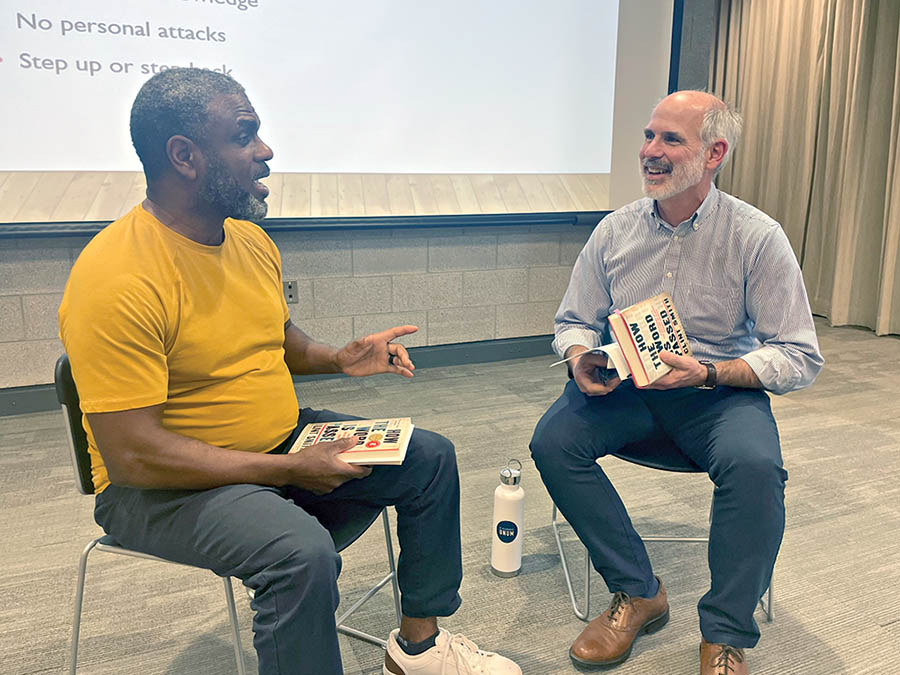When it comes to confronting history, sometimes, the best way to do it is together.
This may be why a crowd of readers gathered at the Fant Memorial Library on the Mississippi University for Women campus on Wednesday afternoon for a Community Read session, discussing the book “How the Word is Passed” by Clint Smith.
The discussion was the second in a series led by Mississippi School for Mathematics and Science faculty member Chuck Yarborough and Rev. Darren Leach of Genesis Church on the book, which focuses on landmarks and monuments displaying the history of slavery across America.
“It really is eye-opening just how little information I had about these things,” Leach said. “I had a lot of the emotion attached to all these things, but not very much information.”
Community Read is a shared reading experience, sponsored by MUW, to encourage connections between school members and others and to “promote gatherings of readers to explore and talk about issues raised in selected books,” according to the MUW website.
Yarborough said “How the Word is Passed” was selected by a committee made up of MUW leadership and community members. He and Leach were not involved in the selection, though he said he was glad to help facilitate the conversation and invite others to speak about the book as well.
“This book offers an opportunity to reflect on our incomplete understanding of the story,” Yarborough told The Dispatch. “And if we can understand and engage in a more complete history, we will make better decisions about our community moving forward.”
During the discussion, Mayor Keith Gaskin commented on the book’s possible impact on the city, as he expressed frustration with complacence, both in the nation’s past and in present attitudes. He asked how the discussion about slavery and racism could go beyond the room, rather than remaining just inside of the context of the Community Read.
“It’s easy to blame the evil plantation owners, but then you step back and look at the complacent world that supported slavery,” Gaskin said. “They may have felt that it wasn’t a good thing, but they enjoyed the benefits that they got… and they just went along. And that’s where I feel terrible many times, is that we continue to just go along with it.”
Errolyn Gray, a community member who said she lobbies Congressional offices to pass anti-poverty policies in a non-partisan group, said it is important to get others to resonate with your story “on a human level” to change others’ minds.
“I think he did a really good job of posing stories and different pictures that make you look at them on a human level,” Gray said. “Now it just goes beyond slavery, but this is a human being– do they deserve to be treated this way? I think that’s when you start seeing change, when you start seeing a person as a person.”
Yarborough said the group will continue to move through the rest of the book over the next few months, with the next Community Read meeting on Oct. 25.
The next session, he said, will cover chapters 4 and 5 in the book and will include a walk downtown about Black history. More readers are welcome to catch up and join the discussion.
“I think if any number of people’s hearts are opened to think more holistically about our community from this book, we’ve got a success,” Yarborough said. “To do this book talk is a small act with a lot of hope involved in it that it will make a difference, and I think it will.”
You can help your community
Quality, in-depth journalism is essential to a healthy community. The Dispatch brings you the most complete reporting and insightful commentary in the Golden Triangle, but we need your help to continue our efforts. In the past week, our reporters have posted 44 articles to cdispatch.com. Please consider subscribing to our website for only $2.30 per week to help support local journalism and our community.



